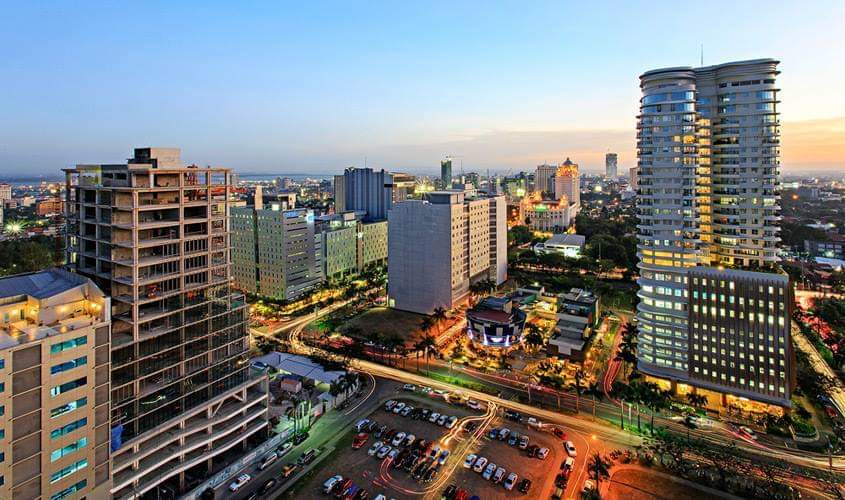
Cebu City skyline |CONTRIBUTED PHOTO
CEBU CITY, Philippines — Real estate players and experts here in Cebu are divided on the country’s new and slightly improved ranking in real estate transparency.
Top global research firm Jones Lang LaSalle (JLL) ranked the Philippines on the 44th spot in their Global Real Estate Transparency Index (GRETI) report for 2019.
It was released last July 8, 2020.
GRETI measures how the real estate industry in a country performs in terms of transparency, legal and regulatory framework, performance measurement, data availability and sustainability.
These indexes are also often used by real property developers and other industry players in gauging their decision whether or not to invest in a particular location.
The Philippines ranked 44th out of 99 countries surveyed, making it a Semi-Transparent country, and a slight improvement from its 45th spot in 2018, JLL noted.
The nation is also part of JLL’s Top 10 Big Improvers in terms of real-estate transparency index, with regulatory reforms, enhanced market data through technology, and sustainability initiatives as major contributors.
JLL’s rankings were released at a time when nearly all sectors and industries in the world grounded to a halt as lockdowns were imposed to curb the coronavirus disease 2019 (COVID-19) pandemic.
In Cebu, some real estate experts welcomed this development as it gave their current plans to navigate a post-pandemic market a boost.
Audi Villa, sales head of HT Land, the proponent behind Mandani Bay, said the improvement in the country’s rankings served as proof that developers are on the right path.
“With that increase in our ranking, we hope (it gives) our global investors more confidence in us to invest here. I think there’s a positive outlook for this report, and we are hopeful,” Villa told CDN Digital in a phone interview.
Villa underscored JLL’s findings that pointed to sustainability and digitalization as major factors contributing to the Philippines’ improvement in the rankings.
“We, as a developer, we are seeing these trends. And we see them a lot in Mandani Bay especially with the goal in establishing what we call green buildings and reducing our carbon footprints. Our first office tower, One Mandani Bay, is poised to achieve those,” he added.
Others, on the other hand, deemed the rankings irrelevant, saying they were not enough to revive an already beaten-up industry that employed thousands of individuals.
For Anthony Leuterio, founder of Filipino Homes, one of the largest realtor groups covering the areas of Visayas and Mindanao, the recent transparency rankings bear little to no impact on today’s market.
Leuterio, in a separate interview, pointed out that the research experts from JLL undertook involved data gathered during pre-COVID days.
“It’s not relevant because that study was taken in pre-COVID… Real estate is so uncertain today. What we can hope for is to be cautious and be more focused on the projects that are good for the market,” said Leuterio.
“But today, as you can see, not even real estate firms can predict what will happen in the next six months. All sectors are having a problem with moving forward because of the limited activities of real estate,” he added.
Suggestions to gov’t
Aside from sustainability and aiming for environment-friendly projects, JLL observed that the country’s improved real estate transparency stemmed from both public and private sectors’ willingness to corporate digital technology.
Villa agreed that using modern techniques that cut through time and space offered both buyers and developers convenience by giving the former more assurance on their investment.
“We definitely moved up now that a lot of our transactions are being digitalized. A few years back, processing all these legal matters and documents could be a struggle and some before were blinded. Now, it’s truly nice to be able to learn about the progress of your transaction on the internet. That adds up to the transparency,” he explained.
But for Leuterio, the country is not yet equipped and ready on embarking Property Technology (PropTech) ventures.
“There are prospects in the Philippines to improve real estate transactions, so we need to focus on PropTech. But the government today is not ready to enhance real estate transactions using technology which can (only) deter the growth of the real estate industry,” said Leuterio.
The prominent realtor, instead, suggested for the government to find ways in revitalizing the real estate sector by coming up with a ‘great structure to revive construction activities’.
He also said the public sector should be more participative in responding to the concerns of real estate players, adding that their industry alone could generate jobs in other sectors as offshoots.
“The government (should) support the real estate developers on how to come up a great structure to make the construction activities back. You need to generate jobs, and real estate is the biggest factor of job creation today,” Leuterio explained. /dbs

